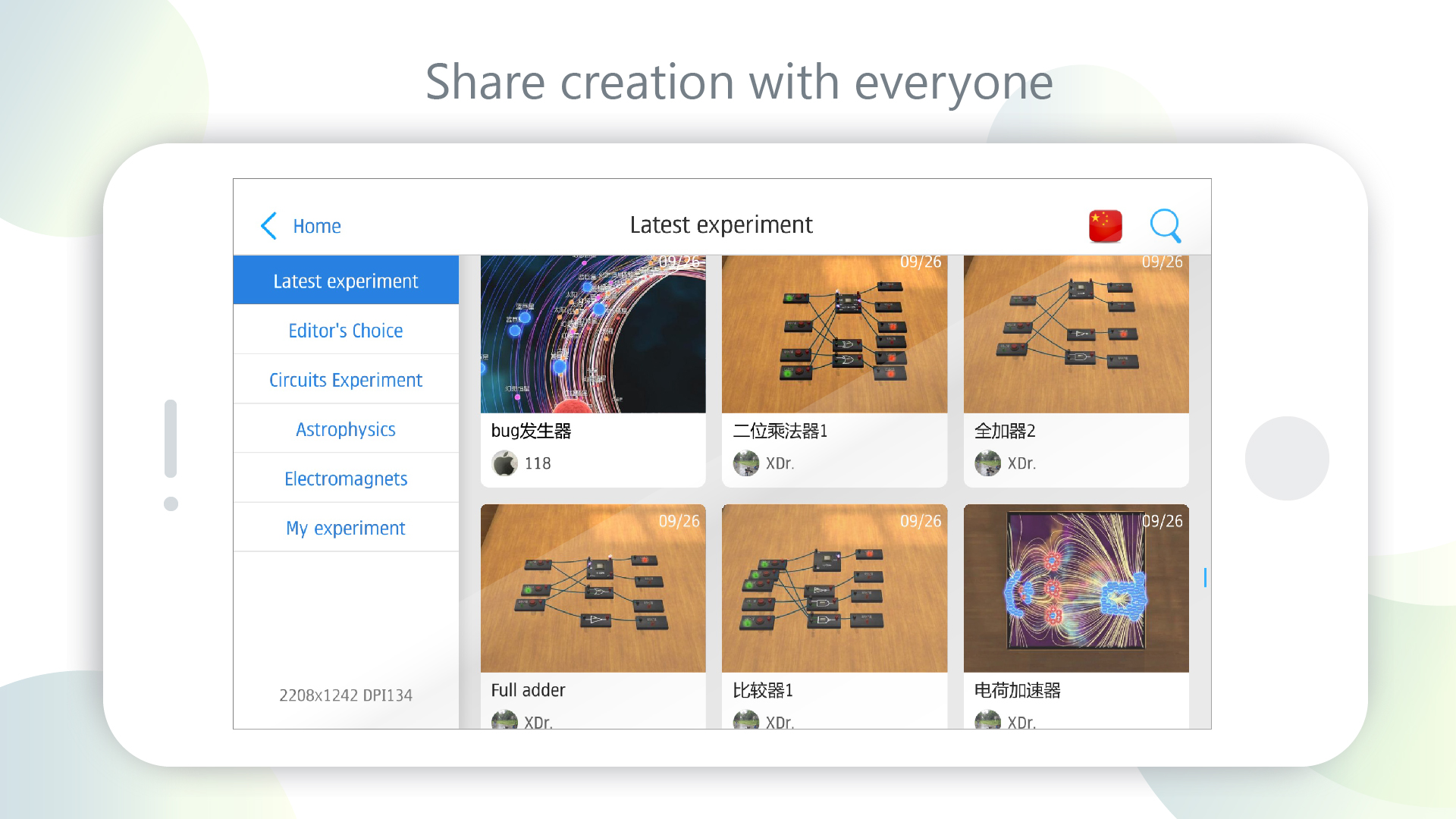Physics Lab AR (2017-Present)
Since 2017, I have been the founder and project lead of Physics Lab AR. My responsibilities include:
- Led a technical and research team with 9 undergraduate and graduate students (2019-present) and professional designers and developers (2017-2019) for the software.
- Conducted mixed methods research to understand its success and large-scale online community, examining millions of log data, shared artifacts, and conversations (ISLS 2022; IDC 2025).
Physics Lab AR started as an interactive sandbox where learners could create virtual physics experiments. The idea stems from my conversation with his high school physics teacher in late 2017: a mobile app that could simulate electronic experiments, with the freedom to place, remove, and connect various electronic components such as batteries, meters, or lamps.
It was initially targeted at high school teachers and students. However, without any promotion efforts from our team, by Dec 2017, it has picked up more than 1,000 users; by Jan 2018, more than 10,000. In Feb 2018, to understand who comprised our fast-growing audience, we established the first instant messaging (IM) groups: one for teachers, and one for students. To our great surprise, most users we talked to were K-12-aged students in out-of-school settings, whereas the teacher group was much more silent. Except for high school students, we encountered many middle school or even elementary school students. The trend was further enhanced when the App Store decided to feature the app on its front page. By Jul 2019, Physics Lab reached more than 1 million users. By mid 2024, it has reached near 7 million users around the world.

Related Publications
While I have been actively maintaining and studying Physics Lab AR for the past years, the sheer capacity of its user base and interaction data has formed significant obstacles. This, in turn, motivates my work in AI and Qualitative Research. Below is a list of my past and ongoing publications around it:
- Chen, J., Zhao, L., Xiao, F., Horn, M. S., & Wilensky, U. J. (2022). Self-Governed Collaborative Inquiry in Action: A Case Study of a Large-Scale Online Youth Community. Proceedings of ISLS Annual Meeting 2022.
- Chen, J., Zhao, L., Horn, M. S., & Wilensky, U. J. (2025). Engaging Millions of Worldwide Youth in Informal STEM Learning: Uncovering Open-Ended Design Principles that Drive Physics Lab’s Success. Proceedings of the ACM Interaction Design and Children (IDC) 2025.
Related Projects
Work in progress.
